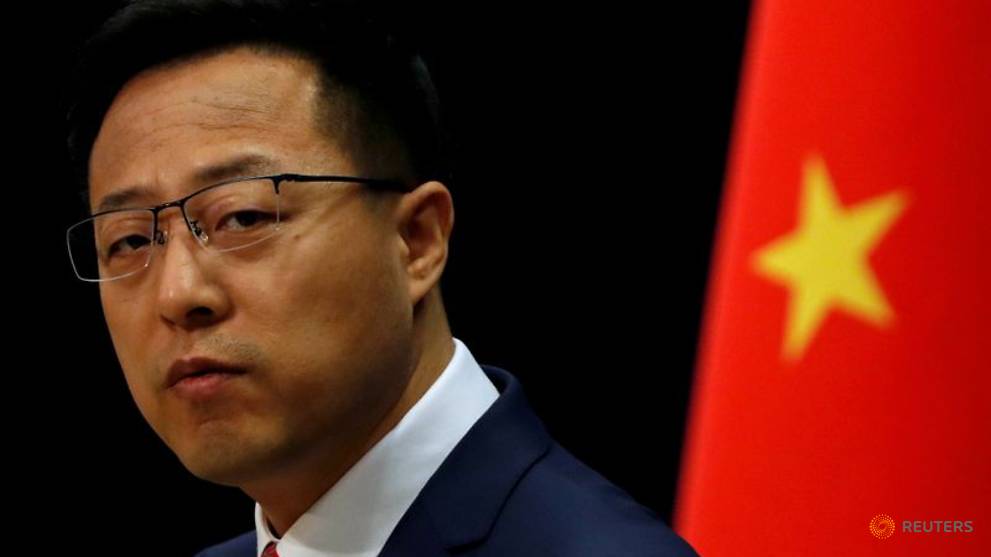
BEIJING: China warned on Monday (Jun 29) that it would impose visa restrictions on US citizens who had "behaved egregiously" over Hong Kong, ahead of expected approval from Beijing lawmakers for a controversial national security law in the city.
China is moving forward on a security law that would enforce punishment for subversion and other offences in Hong Kong, which was rocked by massive and sometimes-violent protests last year.
READ: Hong Kongers march in silent protest against national security laws
On Friday, US President Donald Trump's administration said it was restricting US visas for a number of unspecified Chinese officials for infringing on the autonomy of the financial hub.
Foreign ministry spokesman Zhao Lijian said on Monday that the US "scheme ... to obstruct the passage of the Hong Kong national security law will never prevail".
"To target the US's above wrongful actions, China has decided to impose visa restrictions against American individuals who have behaved egregiously on matters concerning Hong Kong," Zhao said.
APPROVAL IMMINENT
China's top lawmaking committee is expected to adopt the law during sessions that end on Tuesday.
The legislation was approved by Beijing's parliament little more than six weeks after it was unveiled, sending shockwaves through semi-autonomous Hong Kong and beyond.
While outlawing acts of subversion, secession, terrorism and colluding with foreign forces, the legislation will allow China's security agencies to set up shop publicly in the city for the first time.
The United States, Britain, the European Union and the United Nations rights watchdog all voiced fears the law could be used to stifle criticism of Beijing, which uses similar laws on the mainland to crush dissent.
US Secretary of State Mike Pompeo said Washington would curb visas for unspecified current and former officials of the Chinese Communist Party "who were responsible for eviscerating Hong Kong's freedoms".
The officials targeted were "responsible for, or complicit in, undermining Hong Kong's high degree of autonomy", which Beijing promised before regaining control of the territory in 1997 from Britain, Pompeo said.
Last week, the US Senate unanimously approved a Bill that would impose mandatory economic sanctions in the United States against Chinese officials and Hong Kong police identified as hurting the city's autonomous status.
Zhao warned on Monday that the US "should not review, advance or implement relevant negative Bills concerning Hong Kong, even less impose so-called sanctions on China, otherwise China will firmly take strong countermeasures".
https://news.google.com/__i/rss/rd/articles/CBMibWh0dHBzOi8vd3d3LmNoYW5uZWxuZXdzYXNpYS5jb20vbmV3cy9hc2lhL2hvbmcta29uZy1jaGluYS11cy12aXNhLXJlc3RyaWN0aW9ucy1uYXRpb25hbC1zZWN1cml0eS1sYXctMTI4ODA5NzDSAQA?oc=5
2020-06-29 08:20:59Z
52780880940676





